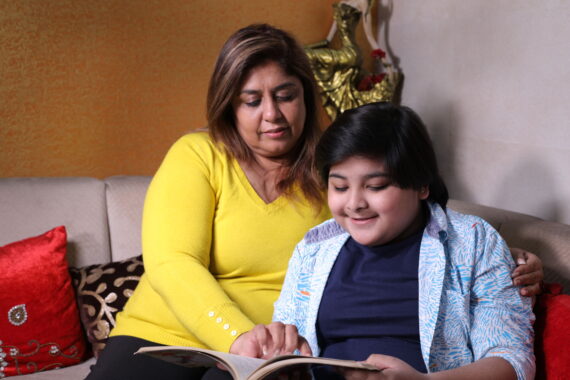Almost one in ten children are classed as obese when they start school, the latest figures from the National Child Measurement Programme show.
Overweight and obesity has crept up again in four-to-five-year-olds to 9.6% in 2023/24 from 9.2% the previous year.
Among those from the most deprived areas, 12.9% – more than one in eight – start reception with obesity, the figures showed.
But among children at the end of primary school fell from 22.7% to 22.1% in 2023/24, NHS England said.
However, this is still higher than rates seen before the pandemic, the report noted.
For 10-and-11-year-olds living in the most deprived areas, the prevalence of obesity is 29.2% compared with 13% in the least deprived areas.
NHS England said 30 specialist clinics around the country are seeing thousands of children aged between two and 18 years who are experiencing health complications related to severe obesity.
Professor Simon Kenny, NHS England’s national clinical director for children and young people, said: ‘These latest figures continue to concern me as they show almost one in ten children are now classified as obese in their first year of school.
‘Obesity can have a major impact on a child’s life – it affects every organ in the body and is effectively a ticking health timebomb for the future by increasing a child’s risk of type 2 diabetes, cancer, mental health issues and many other illnesses.’
He added the NHS was committed to helping young people and families affected by extreme weight issues with tailored packages of physical, psychological and social support.
‘But the NHS cannot solve this alone and continued action from industry, local and national government, and wider society together with the NHS is essential to help create a healthy nation.’
Public health minister Andrew Gwynne said obesity was costing the NHS and the economy billions of pounds as well as setting kids up for an unhealthy life.
‘Children with obesity are five times as likely to live with the condition as adults, so it is vital that we take urgent action to protect children today by shifting our focus from treatment to prevention.’
He pointed to Government measures to limit junk food advertising on TV and online, limiting school children’s access to fast food, and banning the sale of energy drinks to under 16s.
Last month, a House of Lords committee warned tough measures are needed to fix the UK’s ‘broken food system’ and tackle the obesity crisis.
A ten-month inquiry found an ‘utter failure’ of successive governments to tackle the obesity crisis and recommended stringent measures including taxes on junk food and a total ban on advertising of unhealthy food by 2029.
Katharine Jenner, the director of the Obesity Health Alliance, said: ‘Every child should have access to affordable and delicious food, yet our food environment is increasingly dominated by unhealthy options, high in sugar, salt and saturated fat – all of which is a major contributor to England’s shockingly high levels of childhood obesity, as revealed in today’s NHS report.’








